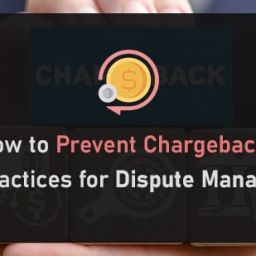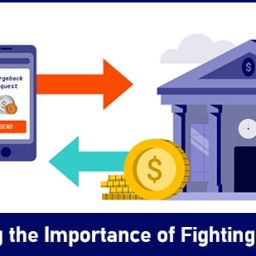
Chargeback disputes can be a headache for businesses, especially when there is not enough evidence to support their case. In today’s digital age, social media has become an integral part of our daily lives, and it also holds great potential for resolving chargeback disputes. By leveraging social media clues, businesses can gather valuable evidence to strengthen their dispute cases and increase their chances of winning. In this blog post, we will explore how social media can be a game-changer in chargeback disputes and how businesses can level up their strategies using these digital clues.
Understanding the Role of Social Media in E-commerce Fraud
In today’s digital world, social media has become a breeding ground for various types of fraud, including e-commerce fraud. Scammers and fraudsters often use social media platforms to carry out their illicit activities, targeting unsuspecting customers and businesses alike. From fake advertisements to phishing scams, social media provides a convenient and accessible platform for fraudsters to deceive and defraud individuals and businesses. Therefore, understanding the role of social media in e-commerce fraud is crucial for businesses to protect themselves and their customers from falling victim to these fraudulent activities. By staying informed about the latest trends and tactics used by fraudsters on social media, businesses can develop proactive strategies to identify and prevent e-commerce fraud before it happens.
Some Related Blogs
- Say Goodbye to Chargeback Fraud with Our Ultimate Prevention Guide
- 5 Proven Tactics to Win Chargebacks as a Merchant
- Stop Losing Money: Reduce Your Chargeback Costs Today!
- The Power of Prevention: Avoiding In-App Purchase Chargebacks
Strategies to Collect Relevant Social Media Evidence
To collect relevant social media evidence for chargeback disputes, businesses need to have a systematic approach. Firstly, it is essential to monitor social media platforms regularly, keeping an eye out for any customer complaints or mentions related to the dispute. Additionally, businesses can use social media listening tools to track keywords and hashtags relevant to their industry and specific dispute. It’s also crucial to capture and document all relevant social media posts, comments, and interactions as evidence. Lastly, businesses can consider reaching out to customers directly via social media to gather additional information or request screenshots or other evidence to support their case. By implementing these strategies, businesses can enhance their chances of collecting valuable social media evidence to strengthen their dispute cases.
How to Leverage Social Media Evidence in Chargeback Disputes
To leverage social media evidence in chargeback disputes, businesses need to approach it strategically. Start by thoroughly analyzing the gathered evidence and identifying key patterns or inconsistencies that support your case. Use screenshots, timestamps, and relevant conversations as proof to showcase the validity of your claims. When presenting the evidence, ensure it is well-organized and clearly demonstrates the connection to the dispute. Be prepared to explain how social media clues strengthen your position and highlight any relevant policies or terms of service that support your case. By effectively leveraging social media evidence, businesses can greatly enhance their chances of success in chargeback disputes.
Real-Life Examples of Successful Chargeback Disputes Using Social Media Clues
Social media has proven to be a game-changer in chargeback disputes, and there are several real-life examples that showcase its effectiveness. For instance, a clothing retailer was able to successfully dispute a chargeback by providing screenshots of social media conversations with the customer, demonstrating that the customer had received the product and was satisfied.
![]()
Email us anytime!
Email customer service 24/7
![]()
Call us anytime!
Reach customer care 24/7 at +1 (888) 901-8653
In another case, a restaurant used social media posts and comments to prove that the customer had consumed the meal and was attempting to falsely claim a chargeback. These examples highlight how businesses can use social media clues to gather compelling evidence and strengthen their dispute cases, ultimately increasing their chances of winning.
Precautions While Using Social Media Evidence
While social media can be a valuable source of evidence in chargeback disputes, it’s important for businesses to exercise caution when using this type of evidence. Firstly, businesses should ensure that the evidence collected from social media is authentic and reliable. Verify the source and credibility of the posts, comments, or screenshots before presenting them in a dispute. Secondly, businesses should be mindful of privacy and data protection regulations when collecting and using social media evidence. Respect user privacy and avoid using any personal information without proper consent. Lastly, businesses should consider consulting with legal professionals to ensure they are adhering to all relevant laws and regulations when using social media evidence. By taking these precautions, businesses can effectively leverage social media clues while avoiding any potential legal pitfalls.





